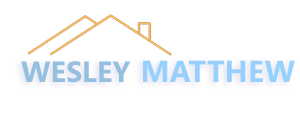1. Customer Relationship Management (CRM) System
A robust CRM system is the backbone of any successful estate agency. Modern real estate CRMs like Salesforce, HubSpot, or specialized platforms like Chime, Follow Up Boss, or Wise Agent help agents manage leads, track client interactions, and automate follow-up sequences. These systems centralize contact information, property preferences, viewing history, and communication logs, ensuring no potential client falls through the cracks. The best CRMs integrate with email marketing tools, provide mobile apps for on-the-go access, and offer automated workflows that nurture leads from initial inquiry to closing. Without a proper CRM, agents often lose track of prospects and miss valuable opportunities for repeat business and referrals.
2. Professional Photography and Virtual Tour Technology
High-quality visual content is non-negotiable in today’s property market. Professional photography equipment or services, combined with virtual tour technology like Matterport, Zillow 3D Home, or iGUIDE, dramatically improve property presentation and buyer engagement. These tools create immersive experiences that allow potential buyers to explore properties remotely, saving time for both agents and clients. Drone photography for exterior and aerial shots adds another dimension to property marketing. Statistics consistently show that properties with professional photography and virtual tours receive more online views, generate more inquiries, and sell faster than those with basic images. The investment in quality visual content pays dividends through increased engagement and quicker sales.
3. Digital Marketing and Social Media Management Platforms
Estate agents need comprehensive digital marketing tools to reach today’s online-savvy buyers and sellers. Platforms like Hootsuite, Buffer, or specialized real estate marketing tools like BoomTown or Chime help agents manage social media presence, create targeted advertising campaigns, and track engagement metrics. These tools enable agents to schedule posts across multiple platforms, create property showcase videos, run Facebook and Instagram ads targeting specific demographics, and maintain consistent brand presence. Email marketing integration allows for automated drip campaigns, market updates, and property alerts. Effective digital marketing tools help agents build their personal brand, generate leads, and stay top-of-mind with past clients for future referrals.
4. Electronic Signature and Document Management Systems
Digital transaction management tools like DocuSign, Adobe Sign, or real estate-specific platforms like Dotloop and SkySlope have revolutionized the paperwork process. These systems allow clients to review, sign, and return documents electronically from anywhere, dramatically speeding up transactions and improving client experience. They provide secure document storage, automated reminders for pending signatures, and complete audit trails for compliance purposes. Integration with MLS systems and other real estate tools creates seamless workflows from listing to closing. The ability to handle contracts, disclosures, and amendments digitally eliminates delays caused by physical document handling and reduces the risk of lost paperwork.

5. Market Analysis and Comparative Market Analysis (CMA) Tools
Accurate property valuation and market analysis tools are essential for providing clients with realistic pricing strategies and market insights. Platforms like RPR (Realtors Property Resource), CoreLogic, or MLS-integrated CMA tools help agents create professional market analyses, track comparable sales, and monitor market trends. These tools provide access to comprehensive property data, including sales history, tax records, neighborhood statistics, and market forecasts. Advanced features include automated valuation models (AVMs), price trend analysis, and demographic data that help agents position properties effectively and advise clients on optimal timing for buying or selling. Reliable market data builds credibility with clients and supports informed decision-making throughout the transaction process.
These five tools form the foundation of a modern, efficient estate agency operation. They address the core functions of client management, property presentation, marketing, transaction processing, and market analysis. Agents who leverage these technologies effectively can provide superior service, close more deals, and build stronger client relationships while streamlining their daily operations. The key is choosing tools that integrate well together and match the specific needs and budget of your agency.













Join The Discussion